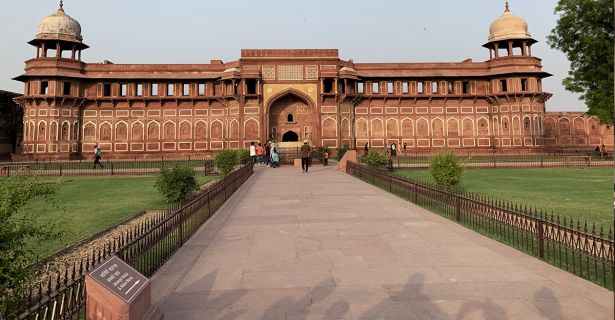This final day of the 2019 ALLIES JRP has brought with it a fair bit of reflection. Over the course of the last sixteen days, Jake, the US Naval Academy team, and I have been able to engage in the culmination of over seven months of preparation to broaden the scope of our knowledge on civil military relations in India. In the mere six days since my last post, Jake and I have been on a blitz of meetings, picking the brains of ex-Indian Ambassadors, leading professors, Army officials, and think-tank scholars.
Just as I had imagined and observed in the previous week, these discussions swiftly turned, even after direct questions on Pakistan, to the outsized role of China in the Indo-Pacific and the scope of India's response to China's growth. It is clear that the Indian policy establishment has quickly woken to the possibility of the Indo-Pacific region being dominated by a string of Chinese military bases and economic outposts - an affront to India's potential role as a net security and economic growth provider for neighboring countries like Bangladesh, Sri Lanka, Nepal, and the Maldives. It seems that the Indian-led BIMSTEC could be one of the informal challenges to Chinese dominance, and a forthcoming, more well-stratified South-Asian socioeconomic alliance will allow for India to consolidate influence in the region.
Our domestic-focused conversations offered unique mediations on the role of Prime Minister Modi and the BJP in Indian governance. Most of those we interviewed suggested that Modi and party were not deserving of the wide, 'Hindu right-wing nationalist' net cast by the western media. Instead, they offered examples of why that approach would be unsustainable in a society as ethnically, socially, and economically diverse as India. In fact, many of the conversations we had with all manner of officials suggested that the domestic political situation in India is not accurately portrayed globally. They argued that Modi’s governance brings with it a greater alignment with domestic culture and Indian heritage than previous governments, and that this renewed focus on national identity has been mis-portrayed as a majoritarian power play. How valid this support is remains to be explored in our future writing
All, however, were clear on the threat of China and the constant security concern to do with Pakistan.
Jake and I are now hard at work on consolidating all that we have learned in the past 16 days into a successful research paper. Exploring India under the banner of civil-military cooperation with students from the US Naval Academy was an honor, as it was to conduct field research with them, and I very much look forward to the product we all hope to create.

